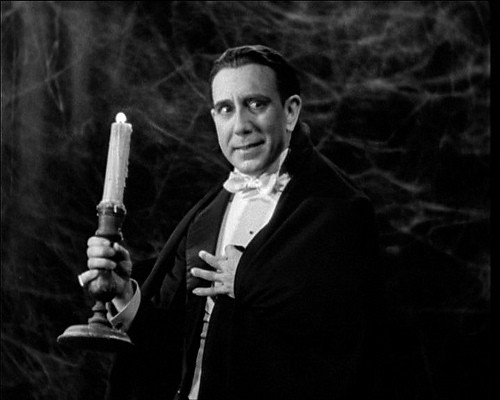I thought I'd lead off here by talking about something I occasionally bring up on my own blog: Thrillers.
I grew up reading fantasy, thanks to my older sister. Sure, I dabbled in horror and science fiction, but most of the books on my shelves were about dudes with swords taking a long trip. And even though I was completely unconnected with fandom, I managed to pick up a few genre-specific terms anyway, and while I'm sure I don't have to explain "high fantasy" and "low fantasy" to readers here, I'll skim over them for completeness' sake.
High Fantasy: fictional settings, kings, empires, armies, generals, palace wizards, GvE, big magic, monsters and non-human species are commonplace parts of the setting, plots with an epic scope.
Low Fantasy: real/historical settings, common citizens as characters--especially criminals, shopkeepers, beggars and police, small amounts of magic (usually), monsters or non-human species regarded as unusual elements in the setting if they exist at all, plots that may include the fate of the world (just like high fantasy) but which have a much smaller scope.
Now, fantasy novels aren't lag bolts. They're works of art (we can argue whether they're good or bad art, but stories = art), so these aren't strict categories. A book can be comfortably placed in "high fantasy" without checking every box on the list. I say this to forestall discussions of edge cases and "Well, what about [X]?" where [X] is a book that matches every low fantasy indicator except that it has a prince in it or something. Pointing out works of art don't neatly fall into a category doesn't refute the category or demonstrate that the category isn't useful. These are descriptive labels, and we don't have to be strict about them.
Back to thrillers: Wikipedia is nice enough to provide a list of subgenres, but for my own purposes I split them into high thrillers and low thrillers.
A high thriller concerns people in power--not kings, but Presidents, CIA officials, FBI investigators, DEA agents, etc. It's unlikely to be set somewhere fictional the way high fantasy is, but it's very likely to take place in settings that the average reader doesn't/can't visit: Ten Downing Street, A cell in Guantanamo Bay, etc. It has big stakes, recognizable good and bad guys, lots of scope and a major part of the appeal is that it gives a peek into the way the very powerful operate.
Want to know how the president stays in touch while on Airforce One? Want to know how a Mossad agent files reports securely? Want to know how your government secures fissionable material? A high thriller makes an implicit promise to the reader that the writer has researched the book to the degree that, while the characters and the dangers are fictional, the depiction of these people and agencies is as accurate as possible. In fact, that research is at the foundation of the genre's appeal.
In addition, I'd suggest that the resources and authority high thriller characters employ is equivalent to magic in high fantasy: it's how they exert their agency. It's often the source of their problems (especially when it doesn't function correctly or is co-opted from within). It's often arcane in its operation. Finally, it offers readers a sort of wish-fulfillment depiction of the exertion of power.
By contrast, a low thriller avoids powerful people in favor of low-level criminals or regular citizens in danger. While a high thriller might involve an international terrorist plotting an attack on U.S. soil, a low thriller would be an insurance actuary's black sheep brother turning up after 15 years with some pissed off criminals on his trail. Or a low-level mobster who discovers he's been betrayed. Or some oddball criminal types try to pull off one last job, with comically disastrous results.
David Morrell and Donald Westlake wrote these sorts of books, along with many, many others. They can be noirish or comic, the characters are rarely wholly good or bad (although the villains are often Genuinely Awful) and the final confrontation is more likely to take place in a motel or boiler room than the Oval Office or Aswan Dam.
Which isn't to suggest that low thrillers aren't carefully researched, or that the research isn't part of the appeal. But typically, the research isn't there to give the reader a glimpse at the tools and methods of power--you're more likely to find out how an insurance actuary does their job.
Charlie writes high thrillers, by my measure. Halting State deals with high-powered corporate types, law enforcement [spoiler], [spoiler], and [spoiler], too. The way these, er, let's call them something generic like "story elements" operate is extrapolated from his research rather than straight-up researched because it's an sf book, but the effect is similar. The Laundry is, of course, explicitly set within a made-up government agency, and you don't get more high thriller than that.
Me, I write low thrillers. The setting is generally commonplace and localized, most of the characters are regular folks, and the plot is played out through the exercise of personal agency rather than cultural or organizational power. In fact, one of the most persistent criticisms of my books has been that they don't have a high thriller insider's view of the Twenty Palace Society.
What can I say? I have preferences.
Obviously, this model could cover all sorts of thrillers. Is the lawyer protagonist of this courtroom thriller making his case before the Supreme Court or working out of an understaffed public defender's office? Is the hapless schmo ensnared in this erotic thriller the Prime Minister or a beach bum drop out?
I guess it takes a lifelong reader of fantasy--a genre obsessed with questions of power and the political exercise of it--to separate thrillers this way, but that's what I do.
What do you think? Is this a sensible way to examine thrillers? Is it a useful tool for looking at other genres?

